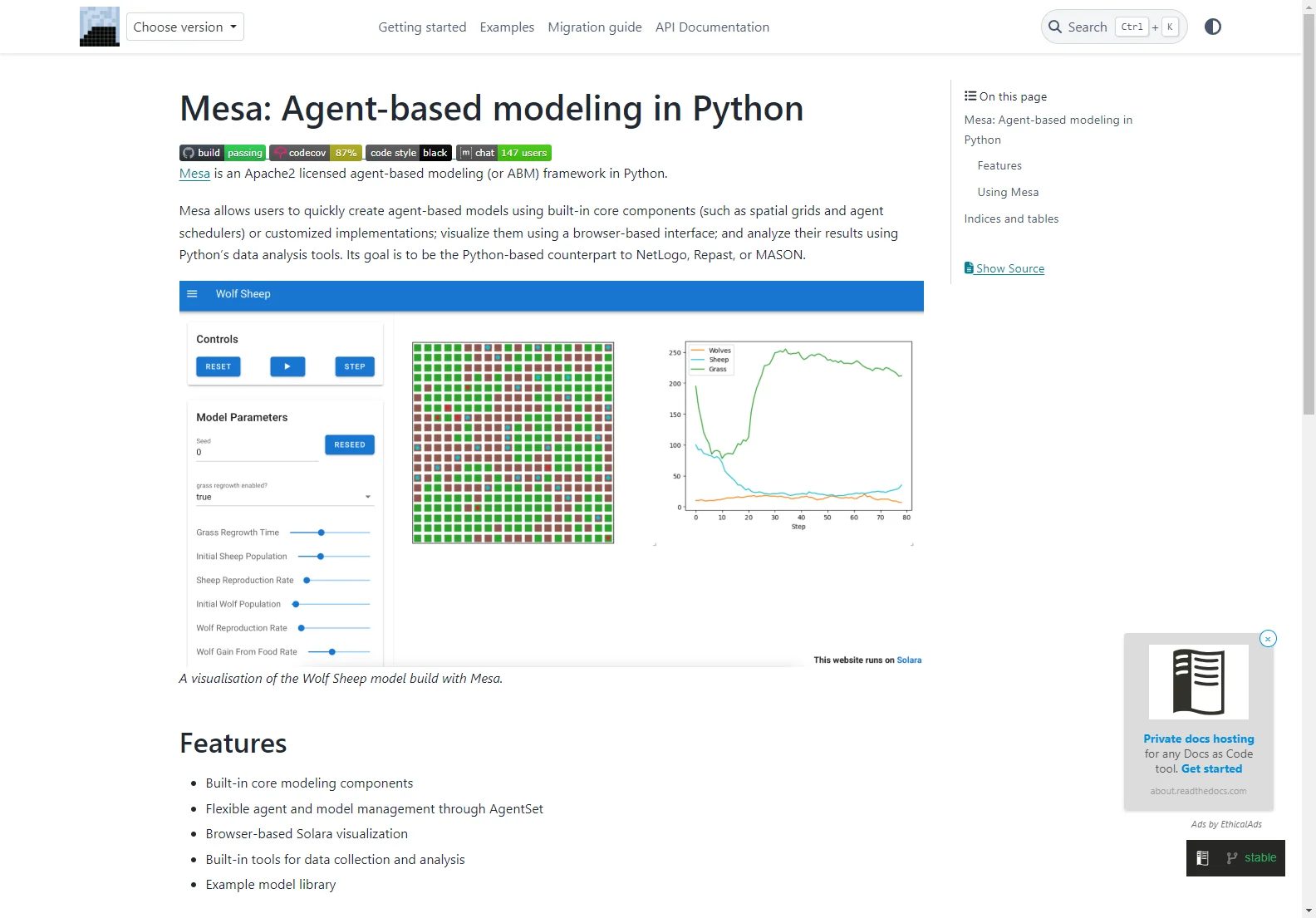Mesa: Agent-based Modeling in Python
Mesa is an open-source, agent-based modeling (ABM) framework written in Python. It provides a flexible and efficient way to create, visualize, and analyze complex systems. Mesa's design emphasizes ease of use and extensibility, making it suitable for both beginners and experienced modelers.
Key Features
- Built-in Core Components: Mesa offers essential ABM components like spatial grids (including hexagonal grids), various agent schedulers (random activation, simultaneous activation, etc.), and data collection tools. This reduces the boilerplate code required to build models.
- Flexible Agent and Model Management: Mesa's design allows for easy customization and extension. You can define your own agent types and model structures to fit your specific needs.
- Browser-Based Visualization (Solara): Mesa integrates with Solara, a browser-based visualization library, enabling interactive exploration of your models' behavior in real-time. This makes it easy to understand and communicate your model's dynamics.
- Data Collection and Analysis: Mesa provides tools for collecting data during model runs. This data can then be easily analyzed using Python's extensive data science libraries like NumPy, Pandas, and Matplotlib.
- Example Model Library: A library of example models is available to help users learn and get started with Mesa. These examples demonstrate various modeling techniques and provide a starting point for building your own models.
Getting Started
Mesa's documentation provides comprehensive guides and tutorials to help you begin building your own agent-based models. The documentation covers installation, core concepts, model building, visualization, and data analysis.
Use Cases
Mesa is applicable to a wide range of fields, including:
- Ecology: Simulating predator-prey interactions, population dynamics, and ecosystem changes.
- Economics: Modeling market behavior, agent interactions, and economic systems.
- Social Sciences: Studying social networks, opinion dynamics, and collective behavior.
- Computer Science: Exploring distributed systems, algorithms, and artificial intelligence.
Installation
The easiest way to install Mesa is using pip:
pip install mesa
For additional dependencies (recommended), use:
pip install mesa[rec]
Community and Support
Mesa has an active community that provides support and resources for users. You can find help through the official documentation, GitHub discussions, and a Matrix chat room.
Conclusion
Mesa is a powerful and versatile agent-based modeling framework that simplifies the process of building, visualizing, and analyzing complex systems. Its ease of use, extensive features, and active community make it an excellent choice for researchers, students, and anyone interested in agent-based modeling.

